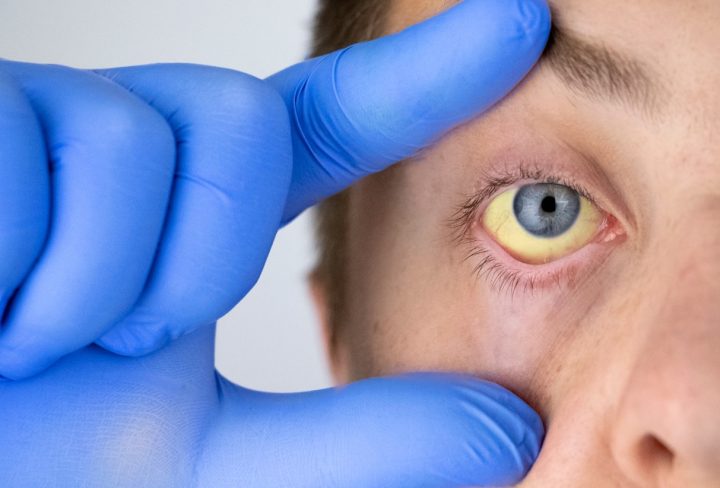Jaundice is characterized by a yellowish tinge to the skin, mucous membranes, and the whitish layer of the eyes(sclera) indicating an issue with the liver or bile ducts.
This condition results from the liver’s inability to process bilirubin, leading to its buildup in the blood.
Jaundice can affect people of all ages but is most common in newborns and older adults.
Causes and Risk Factors
Jaundice occurs when the liver cannot effectively process bilirubin, a waste product which is formed from the breakdown of red blood cells.
Causes include:
- Side effects of certain medications
- Gallstone disease
- Excessive alcohol consumption
- Gallbladder or pancreatic cancer
- Cirrhosis
- Hepatitis or other liver infections
- Hemolytic anemia
Jaundice in newborns is often due to the underdevelopment of the liver, which is less effective at filtering bilirubin.
Symptoms and Complications
Common symptoms of jaundice include:
- Yellowish tinge to skin, eyes, and mucous membranes
- Pale stools
- Dark urine
- Itchiness
- Fatigue, abdominal pain, weight loss, vomiting, and fever
In severe cases, high bilirubin levels can cause kernicterus, a type of brain damage, particularly in infants.
Diagnosis and Treatment
Diagnosis involves a physical examination and lab tests, including:
- Bilirubin tests
- Total blood count (FBC) or complete blood count (CBC)
- Hepatitis A, B, and C tests
- Imaging tests like MRI, CT, and ultrasound
- Liver biopsy
Treatment depends on the underlying cause:
Medications for itching
Surgery is not the first-line treatment for jaundice but is used for conditions like cirrhosis, cholestasis, and liver failure. Procedures include:
- TIPS: Reduces portal vein pressure to prevent complications.
- Cholecystectomy: Removes the gallbladder to treat cholestasis due to gallstones or tumors.
- Liver Transplantation: For severe liver failure caused by various diseases, including cirrhosis.
For newborns, treatment may include phototherapy or blood transfusions for high bilirubin levels
Prevention
Preventing jaundice involves maintaining liver health through lifestyle changes:
- Eating a balanced diet
- Regular exercise
- Limiting alcohol consumption
- Avoiding toxins
- Managing medications carefully
- Avoiding smoking, alcohol, and intravenous drugs
- Getting recommended vaccinations before travelling
- Practicing safe sex
Jaundice indicates a problem with the liver’s ability to process bilirubin. Various conditions, including liver infections, alcohol abuse, and certain medications, can cause this issue. While common in newborns, jaundice can affect people of all ages.
Stay Informed: Learn more about jaundice symptoms and treatments by scheduling an appointment with your doctor today.

